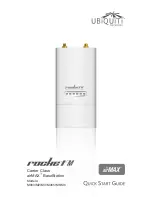
SROS Command Line Interface Reference Guide
Network Monitor Track Configuration Command Set
5991-2114
© Copyright 2006 Hewlett-Packard Development Company, L.P.
1351
test if
Use the
test if
command to specify a single object (schedule, or probe) to be tested. Use the
no
form of this
command to remove the track test. Variations of this command include:
test if probe
<name>
test if schedule
<name>
test if not probe
<name>
test if not schedule
<name>
Syntax Description
not
Optional. Negates the test results when specifying a single object
(schedule, probe, or interface) to be tested.
probe
<name>
Specifies the name of the probe.
schedule
<name>
Specifies the name of the schedule.
Default Values
By default, a track is not associated with any probes or interfaces.
Functional Notes
The
test if
command specifies a conditional test where the track state (pass or fail) is dependant upon the
state of the object (probe, or schedule) being tested. For example, the track will PASS if the schedule or
probe is in an ACTIVE or PASS state. Conversely, the track will FAIL if the schedule or probe is in an
INACTIVE or FAIL state.
The
test if not
command specifies a conditional test where the track state (pass or fail) is dependant upon
the state of the object (probe, or schedule) being tested. The
not
keyword indicates that the track state will
negate the result of the object test. For example, the track will FAIL if the schedule or probe is in an
ACTIVE or PASS state. Conversely, the track will PASS if the schedule or probe is in an INACTIVE or FAIL
state.
Usage Examples
The following example demonstrates the use of the
test if probe
command to specify a single object to
test:
ProCurve(config)#
track PINGTEST
ProCurve(config-track-PINGTEST)#
test if probe PINGREMOTE
The following example demonstrates the logic of the
test if not
command used with schedule tracking:
Note
Network monitoring probes and their associated names are created using the command
probe on page 485. Schedules and their associated names are created using the command
schedule
on page 498. More information on interface commands is available in
Global Commands
on page 363
.
















































